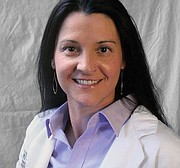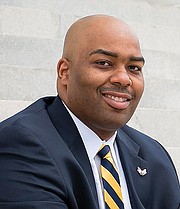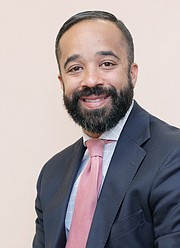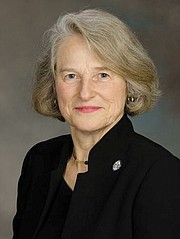Richmond would have only 4 House representatives under redistricting plan
Jeremy M. Lazarus | 1/4/2019, 6 a.m.
Richmond’s representation in the General Assembly could be reduced from five members in the House of Delegates to four if a three-judge federal court panel accepts changes proposed by a California professor to end racial gerrymandering.
Redistricting expert Dr. Bernard Grofman submitted recommendations on ways to alter 11 House districts that the judicial panel previously found were unconstitutionally packed with voting age African-Americans — including changes to five House districts in the Richmond-Petersburg area.
The panel is to hear from interested parties on alternative plans Thursday, Jan. 10, in moving to redraw boundary lines to enable primary and general elections in 2019 to fill the 100 House seats and the 40 Senate seats in the Virginia General Assembly.
Dr. Grofman, a political scientist at the University of California-Irvine, proposed alternative boundaries for the majority African-American House districts in the Richmond area, 69th, 70th, 71st and 74th, with separate recommendations for the 63rd District in Petersburg.
Among the big changes, the 74th District, now represented by Delegate Lamont Bagby, would lie solely within Henrico County and shed its Richmond precinct in North Side as well as Charles City County, under the Grofman proposal.
Under the proposal, the 70th District, represented by Delegate Delores L. McQuinn, would pick up Charles City County, while continuing to represent a portion of the city’s East End as well as parts of Chesterfield and Henrico counties. The plan appears to reduce the 70th District’s share of the city and increase the number of precincts in Henrico and Chesterfield counties.
The 71st District, represented by Delegate Jeff M. Bourne, would pick up the one North Side precinct from the 74th District, plus others and would shed its Henrico precincts. Under the plan, the district would be contained within the city’s boundaries.
The 69th District, currently represented by Delegate Betsy B. Carr, also would drop Chesterfield precincts and solely cover most of the city’s South Side under the plan.
The changes would impact the 68th District, now represented by Delegate Dawn M. Adams. But the Grofman proposal would maintain it as a swing district that includes western parts of Richmond on both sides of the James River, as well as parts of Henrico and Chesterfield counties.
Dr. Grofman also proposed changes to the area’s other majority African-American district, the 63rd District, which currently includes Petersburg and part of Hopewell and is represented by Delegate Lashrecse D. Aird.
Under his proposal, the 63rd District would continue to include Petersburg and portions of Chesterfield and Dinwiddie counties, but with additional precincts from those two counties. At the same time, the Grofman proposal calls for the 63rd District to drop precincts in Hopewell and Prince George County.
The proposed change would have its biggest impact on the majority-white 62nd District, now represented by Delegate Riley Ingram.
Under the plan, the 62nd District would include all of Hopewell, not just the majority-white precincts. Dr. Grofman also presented two alternatives for the district. In one, the district would no longer stretch into Henrico County; in the other, it does. The district also would continue to include portions of Chesterfield and Prince George counties.
Dr. Grofman also offered alternative boundaries for the panel to consider for the six other majority African-American districts located in Newport News, Hampton and the Norfolk area.












